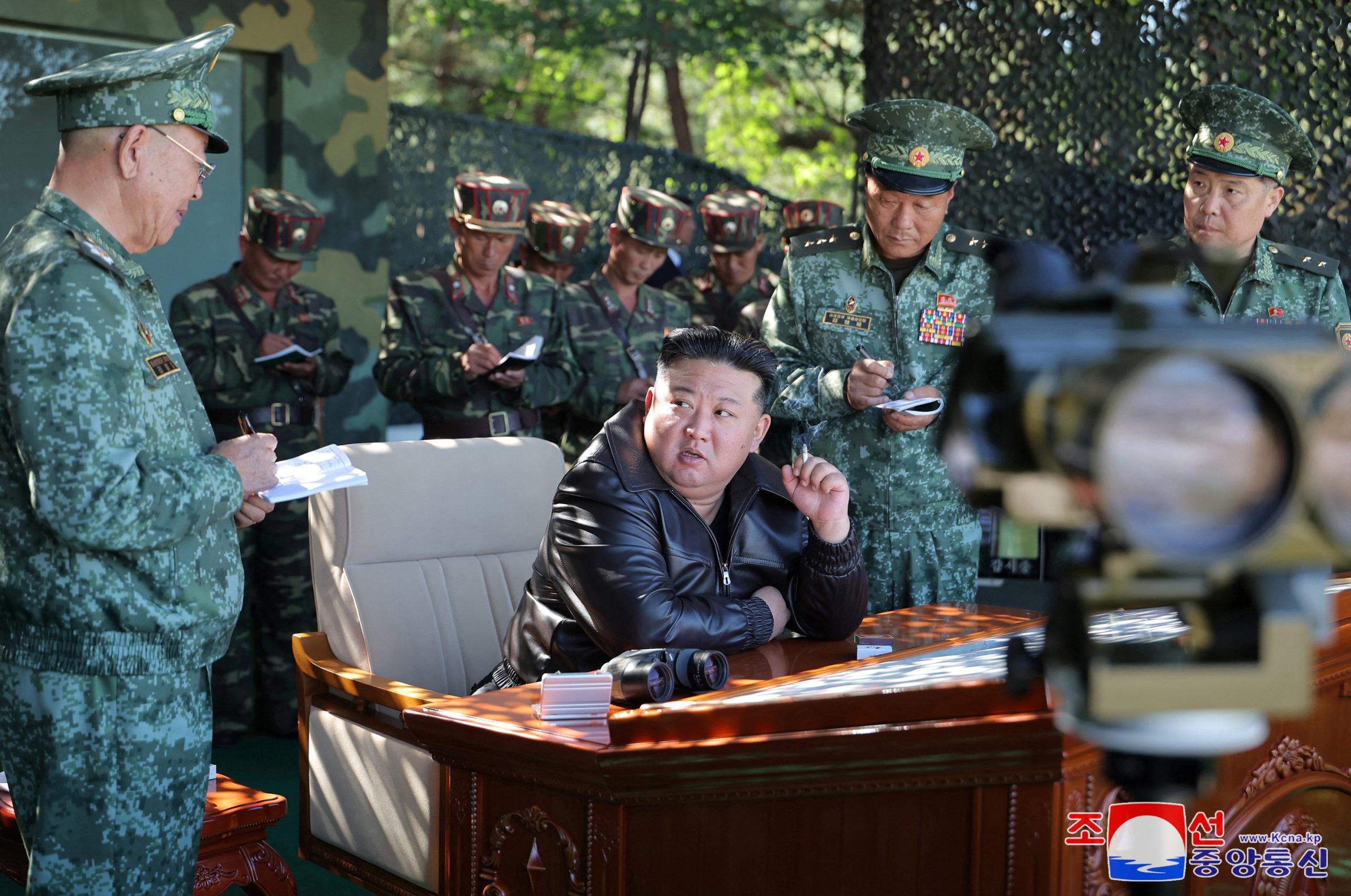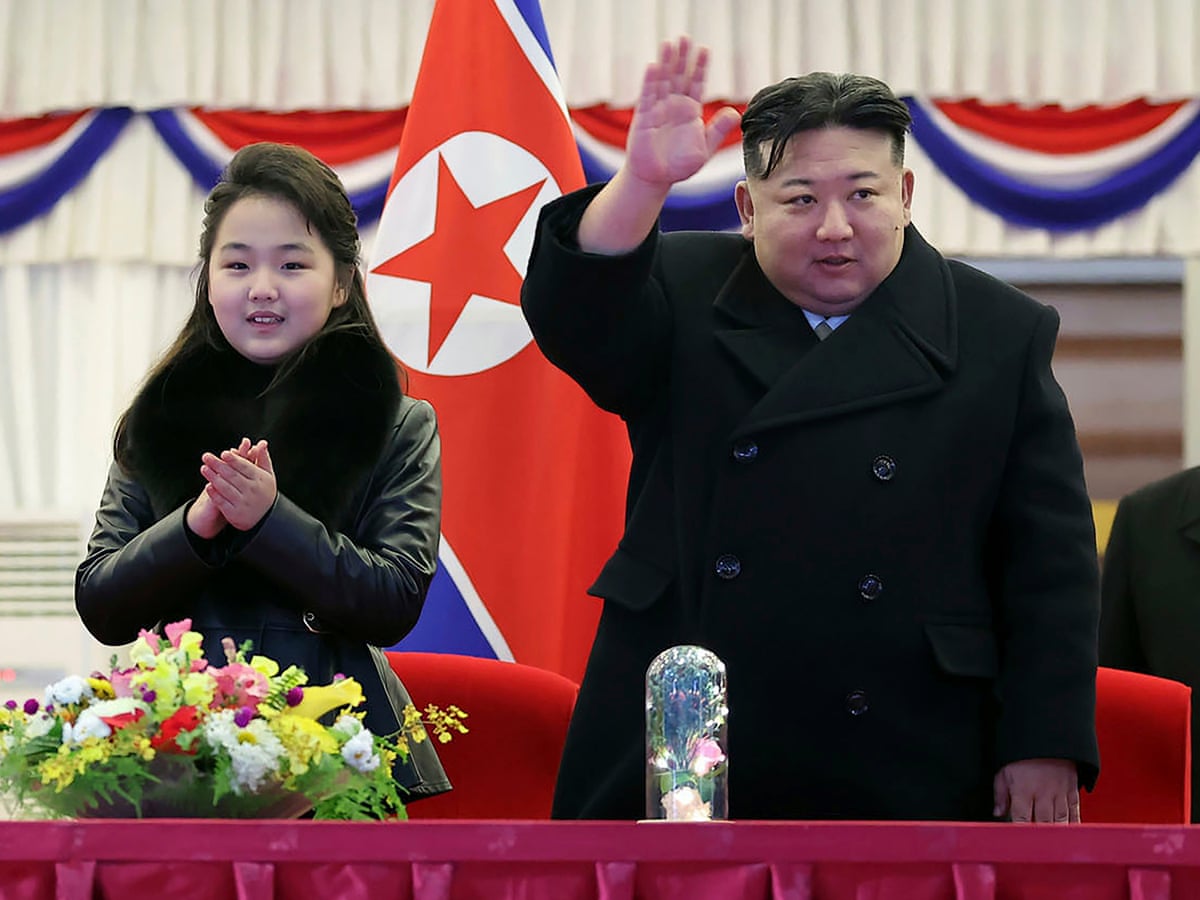In a development that sheds light on the growing security concerns within North Korea, South Korea’s National Intelligence Service (NIS) has revealed that North Korea is intensifying security measures for its leader, Kim Jong-un, due to heightened concerns about a potential assassination attempt. The NIS, South Korea’s primary intelligence agency, disclosed these details during a recent parliamentary audit, indicating that N. Korea is proactively working to counter perceived threats to Kim’s safety.
Why N. Korea is Enhancing Kim Jong-un’s Security
Korea’s security upgrades around Kim Jong-un come amid significant shifts within the isolated regime, where fear of destabilization is driving these unprecedented steps. According to the NIS briefing, Kim’s public appearances have surged to 110 this year, marking a notable 60 percent increase from last year. This uptick in Kim’s visibility may be a response to internal or external pressures, or an effort to strengthen his image as the undisputed leader of N. Korea.
The increased frequency of his public appearances might also expose him to heightened risks, leading to the decision to bolster his security. By deploying communication jamming vehicles and exploring drone detection technologies, N. Korea is stepping up its defenses against sophisticated threats, potentially from foreign adversaries or internal actors with the capacity to carry out an assassination. The measures reflect the country’s broader struggle to maintain stability amid a tense geopolitical landscape.
How N. Korea is Securing Kim Jong-un
The security upgrades around Kim Jong-un are part of a multi-pronged approach designed to address a wide array of potential threats. According to South Korean intelligence, N. Korea has incorporated advanced security measures, including communication jamming vehicles to prevent remote detonations or external surveillance. Additionally, there is evidence that N. Korea is actively pursuing drone detection capabilities, which would safeguard against potential aerial threats.

The NIS also indicated that N. Korea is intensifying efforts to secure Kim’s public presence, which often involves large-scale coordination. For instance, Kim’s movements are strategically concealed until the last moment, and the routes are often altered at the eleventh hour. These rigorous precautions highlight the lengths to which N. Korea is willing to go to protect Kim, reflecting the regime’s awareness of vulnerability and its reliance on the security of its leader.
The Role of the “Juche” Calendar and the Shift in N. Korea’s Ideological Stance

Alongside these security measures, N. Korea is also adjusting its ideological positioning by discarding the “Juche” calendar. The Juche calendar, a symbolic numbering system that began with the birth year of Kim Il-sung, N. Korea’s founding leader, has been central to the country’s identity and ideology of self-reliance. However, recent reports suggest that N. Korea has set aside this calendar, focusing instead on bolstering Kim Jong-un’s role as the singular leader of the nation.
This change could signify a shift in the ideological tone within N. Korea, where the narrative may be pivoting from a lineage-centered regime to one where Kim Jong-un’s authority is emphasized independently. The decision to sideline the “Juche” calendar may indicate that Kim is consolidating his image as a modern leader, potentially to appeal to younger generations or to assert control as his authority becomes more personal.
What This Means for Kim Jong-un’s Daughter, Ju-ae

In addition to the security measures, the NIS noted the rising public profile of Kim Jong-un’s daughter, Ju-ae. Her appearances have drawn international attention, with the NIS noting her position within the leadership hierarchy may have been “partially elevated.” The agency cited specific instances where Ju-ae was seen in the company of her aunt, Kim Yo-jong, who is one of N. Korea’s most powerful political figures.
The increased prominence of Ju-ae could signal a future succession plan or an attempt by Kim Jong-un to prepare the populace for the potential continuation of the Kim dynasty. By positioning Ju-ae as a visible part of the leadership, N. Korea might be signaling stability and continuity, despite the complex and uncertain global and regional dynamics that the regime faces.
The Broader Implications for Regional Security
The security measures surrounding Kim Jong-un and the ideological shifts within N. Korea have significant implications for regional security. The heightened security around Kim suggests a growing awareness of potential threats within the regime, which could either stabilize or further complicate N. Korea’s relationship with its neighbors and the wider international community. As the region grapples with issues ranging from nuclear proliferation to economic tensions, N. Korea’s internal moves could hint at the regime’s priorities and its readiness to confront any destabilizing factors.
Moreover, these moves reflect N. Korea’s unique position on the global stage. By safeguarding Kim Jong-un, the regime is not only trying to protect a person but an entire political structure. Any instability at the top level of leadership could have far-reaching effects on N. Korea’s policies and, by extension, its interactions with countries like South Korea, the United States, and Japan. Observers will likely continue to scrutinize these developments, seeking clues about N. Korea’s future strategies.
Conclusion: N. Korea’s Strategic Shift Amid Security and Ideological Reinforcements
Korea’s recent actions to fortify security around Kim Jong-un and adjust its ideological framework reflect a critical moment in the country’s evolution. By investing in technology to counteract potential threats and promoting a narrative that places Kim Jong-un as the uncontested leader, N. Korea aims to project strength and continuity. However, these steps also reveal the underlying vulnerabilities perceived by the regime in a time of growing regional tensions and international scrutiny.
The NIS’s revelations underscore the complexity of N. Korea’s political landscape, where leadership security and ideological shifts go hand in hand with an evolving strategy aimed at both internal and external audiences. As Kim Jong-un seeks to maintain control, the country’s approach to leadership, succession, and security is likely to influence the broader geopolitical environment in East Asia.


